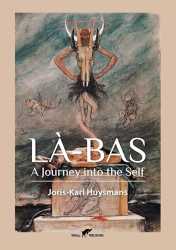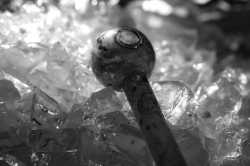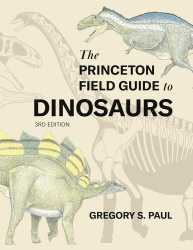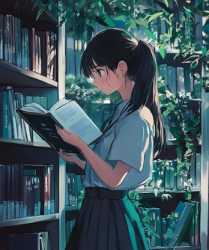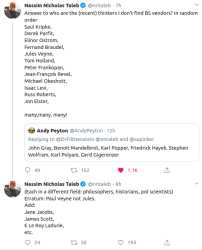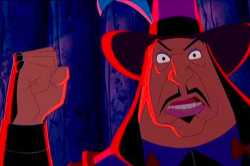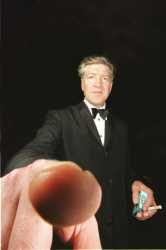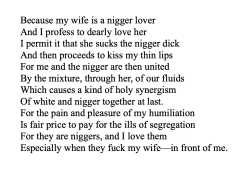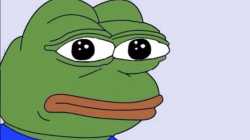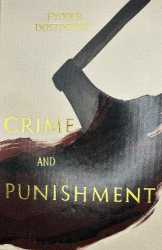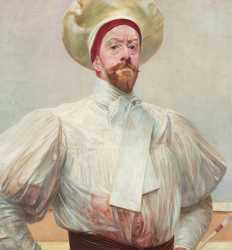Board: /lit/
"/lit/ - Literature" is 4chan's board for the discussion of books, authors, and literature.
/lit/ is for the discussion of literature, specifically books (fiction & non-fiction), short stories, poetry, creative writing, etc. If you want to discuss history, religion, or the humanities, go to /his/. If you want to discuss politics, go to /pol/. Philosophical discussion can go on either /lit/ or /his/, but those discussions of philosophy that take place on /lit/ should be based around specific philosophical works to which posters can refer.
Check the wiki, the catalog, and the archive before asking for advice or recommendations, and please refrain from starting new threads for questions that can be answered by a search engine.
/lit/ is a slow board! Please take the time to read what others have written, and try to make thoughtful, well-written posts of your own. Bump replies are not necessary.
Looking for books online? Check here:
Guide to #bookz
https://www.geocities.ws/prissy_90/Media/Texts/BookzHelp19kb.htm
Recommended Literature
https://lit.trainroll.xyz/wiki/Recommended_Reading 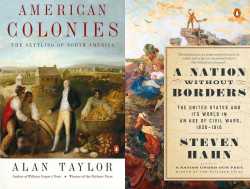 Post and discussion about any type of history book.
Post and discussion about any type of history book.
>American Colonies : The Settlement of North America to 1800 (The Penguin History of the United States Series) by Alan Taylor
>Starts with the earliest years of human colonization of the American continent and environs with the Siberian migrations across the Bering Strait 15,000 years ago. It ends in around 1800 when the rough outline of the contemporary North America could be perceived.
https://www.goodreads.com/book/show/12607708-american-colonies
>A Nation Without Borders: The United States and Its World in an Age of Civil Wars, 1830-1910 (The Penguin History of the United States Series) by Steven Hahn
>The era from 1830 to 1910 witnessed massive transformations in how people lived, worked, thought about themselves, and struggled to thrive. It also witnessed the birth of economic and political institutions that still shape our world. From an agricultural society with a weak central government, the United States became an urban and industrial society in which government assumed a greater and greater role in the framing of social and economic life. As the book ends, the United States, now a global economic and political power, encounters massive warfare between imperial powers in Europe and a massive revolution on its southern border―the remarkable Mexican Revolution―which together brought the nineteenth century to a close while marking the important themes of the twentieth.
https://www.goodreads.com/book/show/34625019-a-nation-without-borders
Previous Thread: >>24504339 Any good books that rebut this book, point by point?
After reading about dialectic I'm also wondering if it's a common thing for a book to be published and then later for another book by another author to be antithesis to the former. Do you have any examples of a series of books where each rebuts the preceding book? Have you read any such books? Thoughts on that? Were you persuaded by a book, and then persuaded by the rebuttal too, or what happened? Herbert really dropped the ball with this one, didn't he? Why has he never commented on Guenon and Evola? Surely he's read the most important thinkers of the 20th century, right? https://youtube.com/watch?v=uOTv6mJPRK0 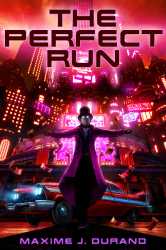 Time loop edition
Time loop edition
Previous >>24556003
>What is Web Novel General?
A general for readers and authors involved or interested in the growing phenomenon of 'web novels', serialized English fiction posted to websites such as: Royalroad, Webnovel, Scribblehub, Wattpad, Archive of Our Own, Spacebattles, HFY, various personal author websites, and more
>Why read web novels?
Not for prose or tight editing or deep themes, frankly. As a whole, web novels are infamous for content sprawl and pacing issues. If you enjoy having millions of words to sink your teeth into to get to know the world and characters, though, you may be interested. Keeping up with other readers on a weekly basis to discuss the story's events unfolding is another perk, in the same way discussing an ongoing TV show might be.
>Why write web novels?
Ease of access & potential for Patreon earnings. Many successful authors gain an audience on their website of choice and funnel their readers into a Patreon. See https://graphtreon.com/top-patreon-creators/writing for an idea of what some are earning.
Also, once an author has earned a fanbase, transitioning into an Amazon self-publishing career is several orders of magnitude easier than starting 'dry'.
> Advice for Noobs!
Running your story like the business it is:
https://www.royalroad.com/forums/thread/116847
On writing webserials:
https://alexanderwales.com/how-to-write-a-web-serial/
Sanderson's Writing lectures 2025:
https://www.youtube.com/watch?v=MEUh_y1IFZY&list=PLSH_xM-KC3ZvzkfVo_Dls0B5GiE2oMcLY We're a dying breed.
If you exclude women reading femgooner slop and YA novels very, very few people read. I admittedly am somewhat ignorant of ancient Greek culture and history. Would Herodotus' Histories be a good start for a novice who wants to expand his understanding of ancient Greece? Wow, that was eye opening. It’s like Mein Kampf but for lefties. considering cyberpunk completely missed the future that is drone / smartphone dystopia, did it at least manage to correct the course? any fiction that is dealing with present and looking towards the future? >Eat like a human being, drink like a human being, dress up, marry, have children, get politically active—suffer abuse, bear with a headstrong brother, father, son, neighbor, or companion. Show us these things so we can see that you truly have learned from the philosophers.
>Epictetus
Is this why childless unmarried philosophers like Kant, Nietzche and Schopenhauer hated the stoics so much? Why do leftists always champion combating illiteracy as some great achievement of communism when in most countries with over 90% literacy rates adults don't read a single book in any given year? What is literacy good for if you don't read any books? Society would be better off with most people being illiterate, I learned to read when I was 3-years-old from TV commercials, if you had to be spoofed and taught to read your "thoughts" are probably worthless anyway once again unto the breach:
poems thread, wherein i teach.
though i have before set sail,
teachers, too, may also fail.
it, this time, i swear to nail.
io crush me if i quail.
moon, be blest, and dog my tail. This board is extremely active for four hours a day, and completely dead for twenty hours a day. I am once again endeavoring to read Aristotle's Organon. Does anyone have any tips of understanding it? Whether commentaries or infographs or just note-taking advice.
I've read a book on Aristotelian logic but it is written in later medevial lingo while Aristotle himself uses his own way to explain things and it's very difficult to understand. so i still have a chance to get published?
>https://www.thefp.com/p/white-man-who-pretended-to-be-black-poet
>https://archive.is/TXmug
The White Man Who Pretended to Be Black to Get Published
A young poet pretended to be ‘a gender-fluid member of the Nigerian diaspora,’ and wrote intentionally bad poems. He says he got 47 of them published. I give up. David is right. The notion of audio books is inherently laughable.
>B-but you can r-read while you're d-doing something else
Jesus fucking Christ, the absolute state.
They're good for visually impaired people, but that's about it. How do we bring it back? I started using it in my handwritten notes not long ago, and it made me realize how clunky, awkward, unnatural, and time-consuming the Th digraph is. Which book had you like this? I still dont get the point of the book of job Just read this and it's my first book from this author. Who has the most interesting opinions on Chigurh's character? I need to get some cause I can't come up with my own 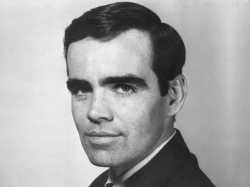 >Considering the comment she left on my Substack review of McCarthy’s The Passenger a few months before he died, she’s already well on her way:
>Considering the comment she left on my Substack review of McCarthy’s The Passenger a few months before he died, she’s already well on her way:
>>Santa Fe killed the Cormac I knew. He gained fame, wealth, and fancy superficial friends. He turned his back on his old friends like Jimmy Long (J-Bone) and Billy Kidwell. They were left to die, forgotten and alone. He lost much of his compassion and kindness. As the Institute crowd claimed more of his time, he struggled to write. Couldn’t write. How could he? He’d stifled or killed that which inspired him. The advance for The Passenger was spent. He was obligated. These last many years he has taken up drinking again. Living in majestic splendor but enjoying none of it. Surrounded by junk and the clutter of a lifetime. Haunted.
>“‘Well, you pretty much laid it all out, didn’t you?’” Britt recalls McCarthy saying when she read him her comment over the phone. The two had not lived together full-time for many decades, and McCarthy had become too frail to make his regular trips out to Tucson. Though as was their habit throughout life, they still spoke on the phone multiple times a week and exchanged letters, 47 of which Britt shared with me. In McCarthy’s final years, he lived in near isolation at his compound in Santa Fe, with luxury cars, spare seats, and car parts smattered across its acreage, like “a rich hillbilly,” Britt fondly recalls. The parts weren’t for nothing—McCarthy was an excellent mechanic. >But in those last years, worth millions of dollars, the great American novelist had taken to comparing himself unfavorably to the principal in the proverb, “It is easier for a camel to go through the eye of a needle than for a rich man to enter the Kingdom of Heaven.”
>“I’m going to delete it,” Britt told him of her comment.
>“‘Let’s see what happens,’” she remembers him counseling. “‘Maybe something good will come of it.’” I've in the first few chapters of picrelated and it's currently the same old Dostoevsky fare, a bunch of hysterical basedjak-esque ranting characters that are parodies of 1800s Russian liberals. I'm getting nothing from it.
Is there any point in continuing with this? I got nothing from The Brothers Karamazov as well. 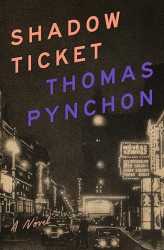 Cover art revealed.
Cover art revealed.
>Milwaukee 1932, the Great Depression going full blast, repeal of Prohibition just around the corner, Al Capone in the federal pen, the private investigation business shifting from labor-management relations to the more domestic kind. Hicks McTaggart, a onetime strikebreaker turned private eye, thinks he’s found job security until he gets sent out on what should be a routine case, locating and bringing back the heiress of a Wisconsin cheese fortune who’s taken a mind to go wandering. Before he knows it, he’s been shanghaied onto a transoceanic liner, ending up eventually in Hungary where there’s no shoreline, a language from some other planet, and enough pastry to see any cop well into retirement—and of course no sign of the runaway heiress he’s supposed to be chasing. By the time Hicks catches up with her he will find himself also entangled with Nazis, Soviet agents, British counterspies, swing musicians, practitioners of the paranormal, outlaw motorcyclists, and the troubles that come with each of them, none of which Hicks is qualified, forget about being paid, to deal with. Surrounded by history he has no grasp on and can’t see his way around in or out of, the only bright side for Hicks is it’s the dawn of the Big Band Era and as it happens he’s a pretty good dancer. Whether this will be enough to allow him somehow to Lindy-hop his way back again to Milwaukee and the normal world, which may no longer exist, is another question. You sit down to write..
What tools do you use? What's the process look like? From a legal pad, a thesaurus and a bic pen to a custom emacs build connected to obsidian and your zettlekasten database. >garden full of lions, tigers, snakes, birds, horses, rabbits, yadda yadda
So did the animals just not eat other? How were adam and eve safe hanging around fucking tigers >He reads a famous, classic book not because he expects to enjoy it, but because it’s famous and classic, and likes how that makes him feel.
This isn't you, is it?
By the way, f you’re not reading it in the original language, you’re not even experiencing the writing itself — only an echo of it through a translator and the reality is, you’d rather check off a well-known title than read a more obscure book where you might actually engage with the words. Why even read the Old Testament if Jesus invalidated it? It would be better to read the NT twice than the OT + NT yeah im thinkin Max won and you niggas are just jealous and need to touch grass (and maybe empty your piss bottles) 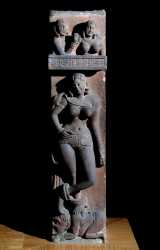 I dabbled for many years now in esotericism and Traditionalism without gaining anything substantial, due to what I believe to be my own faults of method and character.
I dabbled for many years now in esotericism and Traditionalism without gaining anything substantial, due to what I believe to be my own faults of method and character.
Yes, I did attempt to immerge myself into a Tradition exoterically instead of trying to make a syncretic perennialist mix of them.
However, it felt fake and forced with all of those I tried, and I'm not sure that advice is still valid today, which also ironically didn't give me the courage to engage in actual occultism.
Yesterday, out of boredom, I read the Devi Gita and it was the first time I felt something that wasn't mere cerebral, intellectualized understanding, but a profound truth and blessing that manages to reach deep within me, and so now I have the the courage and will to actually do this.
I consider this an important sign, so I wanted to ask about more literature on the topic of Goddess Worship, even better if it belongs to Western Esotericism, due to the practicalities of cultural boundaries, even if it might be considered fringe or sinister by more "solid" occultists, but also anything related to Shaktism and Bhakti Yoga would be appreciated, along with your personal experiences and insight on actual practice. Books I've read so far.
Les Miserables
Infinite jest
Against the Day
Book of the New/Long/Short Sun
The Recognitions
1Q84
Foundation saga
2666
Books that have defeated me:
War and peace
Joseph and his brothers
Brothers Karamazov
JR
Gravity's Rainbow
Underworld
Miss Macintosh my darling
Antagony
Lord of the rings
Gormenghast trilogy
Give me some long books to read that I can actually read Thoughts on Bernard-Henri Lévy? Any recently-written books that expand on this truth? share your theory about why this book isnt coming out 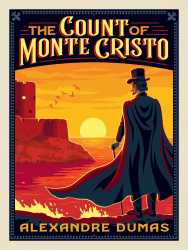 This shit is, essentially, a classic literature version of a native isekai. That is, an isekai without the cross-world transport. A puerile power / wish-fulfillment fantasy.
This shit is, essentially, a classic literature version of a native isekai. That is, an isekai without the cross-world transport. A puerile power / wish-fulfillment fantasy.
I’m not going to complain about the insane bloating, because it was written in a periodical over years so of course it will be bloated. I’m not going to complain about classic literature norms and tropes, it’s a product of its time. I won’t even complain about the structural problems. You can forgive all of that is ONLY there was a great story being told — and there simply ISN’T. It’s merely an avenue for then-contemporary French readers to experience revenge on their upper classes while, simultaneously, living vicariously through Monte Cristo’s fabulous, ostentatious wealth. That’s it, that’s the soul of the story, literally just an isekai at heart.
I’ll ALSO complain how ridiculous the revenge plots are. Monte Cristo is like Agent 47 who completely transforms his identity by putting on new clothes. People who’s known him intimately can’t see through his fucking wig and new accent, it’s absurd. But the point is for the readers to revel in upper-class villains getting totally fooled because fuck them. Furthermore, Monte Cristo doesn’t actually DO anything except to encourage the villains to commit their OWN downfalls. AND, astoundingly, Monte Cristo was GUILTY of the crime he was convicted of, he was NOT a persecuted innocent, just betrayed by -others! And, in exchange for like 16(?) years of hard time, he’s literally given FABULOUS UNTOLD RICHES for the rest of his life. How is this not an isekai at heart? In the stillness of the night, I hear Indigenous Marvel edition
Recommended reading charts. (Look here before asking for vague recs)
https://mega.nz/folder/kj5hWI6J#0cyw0-ZdvZKOJW3fPI6RfQ/folder/4rAmSZxb
>Archive:
https://warosu.org/lit/?task=search2&search_subject=sffg
>Goodreads:
https://www.goodreads.com/group/show/1029811-sffg
>Previous:
>>24545219
>Thread Questions:
What trope would you like to see used in a new way? I just got this is this a good introduction to Kant and Hegel or I'll still get raped regardless? Should I get this? I only read the Narnia books as a kid and wanted to get back into cs lewis. I'm not a Christian either but I always hear about what a great writer he was. What is the literary equivalent of LSD dream emulator Which are recommended translations of the Iliad and the Odyssey in English for a first time reader?
The most common recommendations are Emily Wilson, Stanley Lombardo or Richmond Lattimore but I'm not sure which would be a more enjoyable read. Planetos vacation planner edition
ASOIAF wiki: https://awoiaf.westeros.org/index.php/Main_Page
Blog: https://georgerrmartin.com/notablog/
Old blog: https://grrm.livejournal.com/
So Spake Martin (interviews): https://westeros.org/citadel/ssm/
Book search: https://asearchoficeandfire.com/
SSM search: https://cse.google.com/cse?cx=006888510641072775866:vm4n1jrzsdy
General search: http://searcherr.work/
TWOW samples: https://archive.org/details/411440566-the-winds-of-winter-released-chapters
old: >>24539900 Pindaric edition
>τὸ πρότερον νῆμα·
>>24478787
>Μέγα τὸ Ἑλληνιστί/Ῥωμαϊστί·
https://mega dot nz/folder/FHdXFZ4A#mWgaKv4SeG-2Rx7iMZ6EKw
>Mέγα τὸ ANE·
https://mega dot nz/folder/YfsmFRxA#pz58Q6aTDkwn9Ot6G68NRg
>Work in progress FAQ
https://rentry dot co/n8nrko
All Classical languages are welcome. You WILL read C.S. Lewis. Who is your favourite Russian author? What are some authors you wished more people read? Favourite book? It makes me feel sick and guilty about being a man What's the best e-reader? Just give me the best. This stupid ugly communist has sold 500 billion books. What's your excuse? I've started reading Pushkin. What does /lit/ think about him? I asked a similar question on /pol/ but the answers were not to my satisfaction.
I'm looking for books and other works on what makes political movements successful. Many flounder or peter out despite a lot of initial energy.
I read Trotsky's "The revolution betrayed" but its boring as shit and just reads about Trotsky making excuses for his own failures. What did you all think Emerence and the main character as you were reading The Door? I felt like it was instantly obvious the narrator was an annoying bitch and that Emerence was a good hearted woman. Honestly, I felt really sad for Emerence and really annoyed with the narrator the more I read the book. What do you think Emerence’s biggest mistake in life was? It might be easy to say her mistake was being too secretive, but every time she opened up to someone in her life she always got punished for it hard (except with that police captain). I am honestly not sure, I feel like my life is vaguely following Emerence’s trajectory and I’m not sure how to pivot out of it. How do I become a Kabbalist mystic? I really try to read but this book is insufferable All of philosophy leads up to Traditionalism and the thought of Guénon and associates, which ended it once and for all. People that still go on presumptuously trying philosophize at this point are just engaging in willful ignorance. Guénon did a Herculean task by exposing the root of the ills of modern society and by so clearly delineating to us what our options are. No amount of philosophy will ever come close to unearthing the immutable truths that the primordial Tradition has known all along. No amount of modern pretentiousness will ever surmount the highest wisdom. Brothers! Let us put an end to this contemptuous and foolish charade. It is time to no longer ignore the proverbial elephant, it does us dishonor. Is it possible to be mildly obese and also a great author? I am struggling to find high-BMI individuals who have written profound literature. My soul is just as big, if not bigger, than the body that contains it. Do you have any fat fellows with poetic souls I can use for inspiration? I have a lot of beautiful things to say. >read introduction
>it spoils every single event in the entire book What makes Dostoevsky resonate so much with normie young people and why are they hardly ever influenced by his actual beliefs & worldview? Books about night and night walking? >friend asks me to read her story, saying she based the male character on me
>reddit spacing
>there’s an ai dash in it Why I have a feeling that all light novels that I’ve read are written by teenagers? You considered this literature? He's right, you know? I like his essays on Might is Right I wish I could have saved them. What is your favorite literary romance? Is Fyodor Dostoyevsky the greatest novelist who has ever lived? I read Ij a year ago and I now realize that the point of the whole book wasn't to solidify some philosophical meaning into me but was to allow me a huge catalog of memories of scenes which I could replay in my mind like a dream or movie which he would probably think would cure the loneliness by allowing yourself to be captivated by your own pscyche and not actual images on the screen. Which is the point of the whole book I assume. Anna hasn't even appeared in the book yet and it's always ludicrously good line 8 : ᚠᚱ ᛁᛉᚱᚨ ᛈᛟᛋᛏ ᛗᛁᚾᚷᛖᚱᛋ ᛃᛟᚢᚱᚾᛖᚣ
Frixra, post mingers journey.
line 9 : ᛗᛟᚱᛖᚾ ᚠᛟᚱᚷᛖᛏ ᛟᚢᛏ ᛟᚠ ᚨᚱᛏᛁᚠᛁᚲᛁᚨᛚ
M O E R E N – F O E R G E T – O E U T – O E F – A R T I F I K I A L
"Moren forgets out of artificial."
line 10 :ᛗᛖᛋᛋᚨᚷᛖᛋ ᛁᛋ ᚠᛟᚱ ᛏᚻᛖ ᚾᛖᚹ ᛋᛖᛚᚠ
M E S S A G E S – I S – F O E R – T H E – N E W – S E L F
"Messages is for the new self."
LINE 11 :ᛞᛟ ᚾᛟᛏ ᚲᛖᛖᛈ ᚲᛖᚱᛖ
D O E – N O E T – K E E P – K E R E
"Do not keep care."
LINE 12: ᛋᛏᚨᚣ ᚨᚹᚨᚣ ᚠᚱᛟᛗ ᚨᛚᛚ ᛏᚻᛁᛋ
S T A Y – A W A Y – F R O E M – A L L – T H I S
"Stay away from all this."
lINE 13 : ᛏᚻᛖ ᛋᛖᚲᚱᛖᛏ ᚨᚲᛏᛋ ᚨᚱ ᚹᛁᛏᚻ ᚣᛟᚢ
T H E – S E K R E T – A K T S – A R – W I T H – Y O E U
"The secret acts are with you." If you read this, maybe you'd think more positively, and you'd be less of a vitriolic dejected freak. FAQ:
>Isn't this YA shit
The first book is, the next two lean far more into space opera kino, and the rest are mature, flirting with grimdark.
>When is Red God coming out
Summer 2026
>When is the adaptation?
TBA
https://red-rising.fandom.com/wiki/Red_Rising_Wiki
Thread Question: Best side character? Was he right about the elites? How did stoicism get reduced to its current state of being youtube shorts slop and podcast slop? I want to get into an occult knowledge. Recommend me essential and more obscure books to break my mind. I already checked /lit/ occult charts, and it's not enough. >On June 9, at Manchester University’s Lister Oration, British brain surgeon Geoffrey Jefferson states, “Not until a machine can write a sonnet or compose a concerto because of thoughts and emotions felt, and not by the chance fall of symbols, could we agree that machine equals brain – that is, not only write it but know that it had written it. No mechanism could feel (and not merely artificially signal, an easy contrivance) pleasure at its successes, grief when its valves fuse, be warmed by flattery, be made miserable by its mistakes, be charmed by sex, be angry or miserable when it cannot get what it wants.” 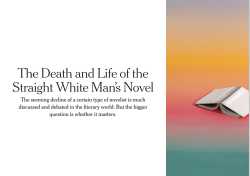 https://archive.ph/tnpzh
https://archive.ph/tnpzh
>A Los Angeles father, once an aspiring screenwriter and now a professional ticket-scalper, spends his spare hours calculating the extent to which younger straight white male novelists have been frozen out of the literary world. He pens a jeremiad against both publishers and critics who, he avers, no longer value great writing and a cadre of writers who are no longer interested in telling the truth about society.
>It sounds like the premise for, well, a literary novel. Saul Bellow’s Moses Herzog, who wrote defiant letters to personages living and dead, meets the 21st century. Watch the advance money, sales and recognition roll in.
>Or not. It is the contention of a polemic published in March in the online magazine Compact by the writer Jacob Savage — dad, ticket-scalper, former screenwriter — that today, such a novel would not receive acclaim commensurate with its quality, a claim he backed up by showing a dearth of such authors from lists of prominent literary honors. Moreover, Savage argued that what he saw as these novelists’ self-censorship, whether provoked by timidity or rational self-interest, meant that such a novel would not even be written.
>“Unwilling to portray themselves as victims (cringe, politically wrong), or as aggressors (toxic masculinity), unable to assume the authentic voices of others (appropriation), younger white men are no longer capable of describing the world around them,” Savage, who is 41, wrote. What they do write, he added, avoids “grappling directly with the complicated nature of their own experience in contemporary America.”
>Savage’s essay has attracted both derision and amens in newspapers and journals, on social media and Substacks, over drinks and in group chats.
>“I think the nerve I hit is fairly obvious,” Savage said in an interview, adding, “being able to put numbers behind it was cathartic to some people and triggering to others.”
>Humming underneath the disputation is a less tangible but more significant question. Let us say the perspective of the straight white man is being dampened in the world of literary fiction. Should we care?
>For some observers, the complaint is roughly translatable as, “Won’t somebody please think of the straight white men?” “If a very small number of people who are not white, male, heterosexual gained a (likely temporary) foothold in a fringe cultural practice — which is what literary fiction is — there has to be a raging sense of privilege, neo-Trumpist or outright Trumpist, to claim that that constitutes a crisis,” the Bosnia-born novelist and screenwriter Aleksandar Hemon said in an email.
>Francine Prose, a novelist and critic, was similarly skeptical: “You’ve run the world for thousands of years, and now you’re feeling disenfranchised?” Hello from the dankest corner of Josef Fritzl's rape dungeon where the crack smoking child molesters fuck eachother's asses without a scumbag on. Where future serial killers decapitate the genitals of baby mice. Where our mothers made us watch em getting fucked by their johns and where we played with used needles like Hot Wheels. Hello from the devil worshipers and the tarot card readers and the mass shooters who read Mein Kampf before they go to bed. How do you like your eggs? Hello from the botox injecting abortionists who break their hippocratic oath to line their demonic pockets. Hello from the jackbooted policemen who stamp all over you and infect your homes with corruption. The property developers here build our tenements and always make sure they're high enough for suicide. And they are. The streets are covered with our blood and the media sells it back to us. One endless cycle of quiet deaths and a big bomb just waiting to release us from it. I heard this was written by a 4channer so I picked it up but haven't started it yet. Did I make a good purchase? >mfw /lit/ is forcing me to read another Dostoevsky slog novel Seriously, why did he think it was a good idea to hire an editor on Fiverr to edit his novels? This is very clearly a bad idea to anyone with an ounce of sense, and everyone knows editing literature isn't just about checking spelling and grammar (which the ESL editor still left plenty of mistakes). Why didn't someone advise him to hold off on publishing the book until he can find a serious creative collaborator? Are Jay the Author and Jayden fake friends? They let him sleepwalk into viral humiliation and allowed his dreams of becoming a respected writer to perish in front of him. it's going to take almost half a year of daily reading to get through the complete works of Plato, lord have mercy 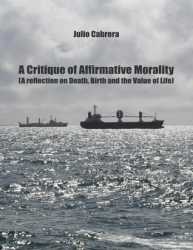 To condemn suicide is the ultimate moral fraud, a sanctimonious lie told by a society that happily accepts manipulation, suffering, and the cold elimination of others, yet flinches at the prospect of an individual judging their own existence to be unworthy. This is not a matter of circumstantial sadness (a failed romance, a lost job, etc.) but a rational, ethical verdict against the very structure of life, a terminal condition whose fundamental state is pain and whose inevitable trajectory leads to moral disqualification. When the relentless grind of being erodes your capacity to live as a moral agent, clinging to life becomes the true act of cowardice, a base submission to biological instinct. The great philosophers, from Kant with his convenient asymmetries to Heidegger with his fear of truly owning one's death, failed to grasp this. To choose your end is the ultimate act of moral agency, an overcoming of nature that is far more profound than mindlessly continuing to live at any cost. My non-being is my own negative patrimony, an inalienable right I need not earn and for which I need no one's permission. The real philosophical question is not why one would choose to die, but rather, given the structural horror of it all, how anyone manages to keep on living. Is ChatGPT reliable for summarizing texts? Give some examples.
To condemn suicide is the ultimate moral fraud, a sanctimonious lie told by a society that happily accepts manipulation, suffering, and the cold elimination of others, yet flinches at the prospect of an individual judging their own existence to be unworthy. This is not a matter of circumstantial sadness (a failed romance, a lost job, etc.) but a rational, ethical verdict against the very structure of life, a terminal condition whose fundamental state is pain and whose inevitable trajectory leads to moral disqualification. When the relentless grind of being erodes your capacity to live as a moral agent, clinging to life becomes the true act of cowardice, a base submission to biological instinct. The great philosophers, from Kant with his convenient asymmetries to Heidegger with his fear of truly owning one's death, failed to grasp this. To choose your end is the ultimate act of moral agency, an overcoming of nature that is far more profound than mindlessly continuing to live at any cost. My non-being is my own negative patrimony, an inalienable right I need not earn and for which I need no one's permission. The real philosophical question is not why one would choose to die, but rather, given the structural horror of it all, how anyone manages to keep on living. Is ChatGPT reliable for summarizing texts? Give some examples.
Haruki Murakami's Hard-Boiled Wonderland and the End of the World features chapters that alternate between two seemingly unrelated narratives. When translating the novel, Alfred Birnbaum made the decision to have the odd chapters that take place in Tokyo be in past tense, and the even chapters that take place in The Town in present. This does more than just add to the atmosphere. When considering things like psychic distance, it could be said that present tense is a closer perspective than past; less psychic distance. After finishing the story, this almost seems like a slight translator's hint as to what's going on in the story. >reads Treasure Island once The Trojan Women is a masterpiece and Euripides is the master dramatist of the three greats. What's this guy's problem 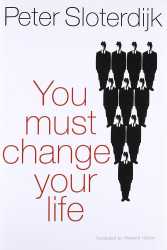 What are you waiting for? For someone to hand you a new life? Listen: you aren't born, you are BUILT. You are the product of your practice, the result of your repetitions. The future isn't some foggy idea; the future is forged in the fire of your exercise, right now. Everything you do is an operation on yourself, a way to level up for the next fight. There is a command echoing inside of you, a law that screams, "You must change your life!" It's a pull from a higher version of yourself, a stronger you that's waiting. Are you going to answer it, or are you going to stay stuck in the mud of the ordinary? This is a battle against your own inertia, a war against the lazy, automatic habits that have you in chains. You have to wake up and pay attention to the battle inside, break away from your past, and declare war on who you used to be. It's time for a total reversal, a change of trainer. Fire the coach in your head that tells you you're weak. Find a new master, a new code, a new plan, and follow it with everything you've got. The greats, the masters, the champions: they are the blueprint, the living proof of what's possible when you stop making excuses and start working on yourself. You are the project. You are the sculptor and the stone. The goal isn't just to get better; it's the total production of a New Human Being, a virtuoso of living, an artist whose masterpiece is their own damn life. Stop waiting to be transformed. Go and transform yourself.
What are you waiting for? For someone to hand you a new life? Listen: you aren't born, you are BUILT. You are the product of your practice, the result of your repetitions. The future isn't some foggy idea; the future is forged in the fire of your exercise, right now. Everything you do is an operation on yourself, a way to level up for the next fight. There is a command echoing inside of you, a law that screams, "You must change your life!" It's a pull from a higher version of yourself, a stronger you that's waiting. Are you going to answer it, or are you going to stay stuck in the mud of the ordinary? This is a battle against your own inertia, a war against the lazy, automatic habits that have you in chains. You have to wake up and pay attention to the battle inside, break away from your past, and declare war on who you used to be. It's time for a total reversal, a change of trainer. Fire the coach in your head that tells you you're weak. Find a new master, a new code, a new plan, and follow it with everything you've got. The greats, the masters, the champions: they are the blueprint, the living proof of what's possible when you stop making excuses and start working on yourself. You are the project. You are the sculptor and the stone. The goal isn't just to get better; it's the total production of a New Human Being, a virtuoso of living, an artist whose masterpiece is their own damn life. Stop waiting to be transformed. Go and transform yourself. 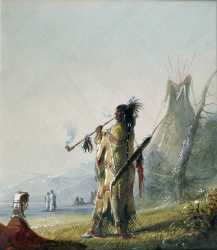 As a young American, I can't help but to think that I will be spending a large portion of my adult life living in a down turn. There are many forces that will be coming into play that will eventually have a negative effect on my and my families standard of living:
As a young American, I can't help but to think that I will be spending a large portion of my adult life living in a down turn. There are many forces that will be coming into play that will eventually have a negative effect on my and my families standard of living:
-Artificial Intelligence
-Climate change
-Healthcare
-Immigrantion
-Wealth Inequality
-Housing
-Federal fiscal mismanagement
-Growing Anti intellectualism
-An economy more and more based on gambling, exploitation, and war.
-An Elite class that has more loyalty to their own global members than to the nations they come from.
And this list could go on and on. I know that it is common for someone living in any era to feel as if they are in the 'end times' or that the good times are already gone and history finds that they were mostly proven incorrect. Even knowing this, I look at the challenges of the future and I am at a loss as to what I should do to ensure I live a long and prosperous life. Have you read any books that could give some guidance in this regard? Or do you have an advice to give to someone with these anxieties? If he was alive today what would his politics be? Would he regard himself as having been wrong? Would he still be a bourgeois liberal conservative centrist faggot? Would he still have married a Jewess? Would he have come out and embraced his sexuality? What would Thomas Mann be like if he was alive today? Which version of this should I be getting? Should I just read the abridged penguin one? I don't have a single wordsworth classic but this cover is nice. are they better or worse than penguins? No overarching plot. The story just meanders wherever it likes with no purpose or resolution. Extremely flat characters that attempt to give the illusion of depth and fail.
>but muh heckin christcuck allegories
>but muh rereadability
>but sam hyde said…
Yawn. Double yawn even. Don’t waste your time with this sci-slop. >The human intellect, even in an unphilosophical state, is in possession of certain cognitions a priori. Achilles and Patroclus. Lovers or brothers in arms? Which is the best typeface/font for books, in terms of readability and comfort? >He doesn't believe hard enough
What are you even doing, anon? I'll list a few things I liked about the books mentioned above, maybe someone who likes similar stuff can recommend books that contain some of the criteria:
Lolita:
> unreliable, obviously mentally ill narrator who presents his delusions as fact and tries to manipulate the reader into believing his narrative
> the contrast between the superficial descriptions and the dark subject matter
> the fact that I had to put the book down at times just to take a breath and step back from Humbert's POV
Young Mungo:
> the cold detached narrator who sounds more like he is narrating a wildlife documentary
> the few good things that happen are immediately contrasted with more violence and dark subjects
> the description of environments and people
dunno I just read both of these books recently and want more similar stuff You haven't read a book unless you've written notes on it. Dostoevsky’s novels brought me closer to God. How do you store / backup / track changes for your writing? I've been just periodically copying everything to another location. "Have you ever learned a new language just so you can enjoy a book better in its original version?" Post an author with more aura OOC moments that made you nope out of the fic Do I need to read Sir Gawain and the Green Knight before this? Is Ivan Bunin any good? What's the best book of his to start with? The greatest man since Christ’s time 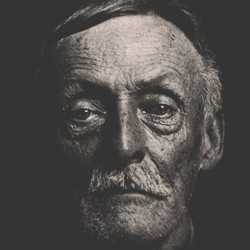 My dear Mrs. Budd,
My dear Mrs. Budd,
In 1894 a friend of mine shipped as a deck hand on the Steamer Tacoma, Capt. John Davis. They sailed from San Francisco for Hong Kong China. On arriving there he and two others went ashore and got drunk. When they returned the boat was gone.
At that time there was famine in China.[1] Meat of any kind was from $1 to 3 Dollars a pound. So great was the suffering among the very poor that all children under 12 were sold for food in order to keep others from starving.[2] A boy or girl under 14 was not safe in the street. You could go in any shop and ask for steak -- chops -- or stew meat. Part of the naked body of a boy or girl would be brought out and just what you wanted cut from it. A boy or girls behind which is the sweetest part of the body and sold as veal cutlet brought the highest price.
John staid there so long he acquired a taste for human flesh. On his return to N.Y. he stole two boys one 7 one 11. Took them to his home stripped them naked tied them in a closet. Then burned everything they had on. Several times every day and night he spanked them -- tortured them -- to make their meat good and tender.
First he killed the 11 year old boy, because he had the fattest ass and of course the most meat on it. Every part of his body was Cooked and eaten except the head -- bones and guts. He was Roasted in the oven (all of his ass), boiled, broiled, fried and stewed. The little boy was next, went the same way. At that time, I was living at 409 E 100 st., near -- right side. He told me so often how good Human flesh was I made up my mind to taste it.
On Sunday June the 3 --1928 I called on you at 406 W 15 St. Brought you pot cheese -- strawberries. We had lunch. Grace sat in my lap and kissed me. I made up my mind to eat her.
On the pretense of taking her to a party. You said Yes she could go. I took her to an empty house in Westchester I had already picked out. When we got there, I told her to remain outside. She picked wildflowers. I went upstairs and stripped all my clothes off. I knew if I did not I would get her blood on them.
When all was ready I went to the window and called her. Then I hid in a closet until she was in the room. When she saw me all naked she began to cry and tried to run down the stairs. I grabbed her and she said she would tell her mamma.
First I stripped her naked. How she did kick -- bite and scratch. I choked her to death, then cut her in small pieces so I could take my meat to my rooms. Cook and eat it. How sweet and tender her little ass was roasted in the oven. It took me 9 days to eat her entire body. I did not fuck her tho I could of had I wished. She died a virgin." Socrates is just a glorified redditor.
The dialogues, the reasoning, the arguments are all laughably childish and naive. Why should anyone read this when even the average conversation here has more depth than this supposedly mind boggling book? Did nobody even tell him "Hey Steve, great novel, gonna be another huge seller, but um, we think there's a couple of pages that really ought to stay on the cutting room floor..." ![zdartango[1]](https://i.4cdn.org/lit/1752716578765072s.jpg) How adventureous do you get with the books that you take home, /lit/? I've done enough skimming around on the peripheries of the general canon in literature that I don't feel too lost whenever I walk into a book store, but I must admit that I have a lot of difficulty with trusting works that I have zero information on other than what's in-front of me, which is the cover/title/country/synopsis and whatever else is readily available. It's even worse with non-fiction books, as I immediately doubt the level of scholarship/research involved, and the author's own agendas, having to check its credibility online at least before I spend money on it. I don't have this issue with any other medium, nor with books that I digitally acquired free of charge, but when I'm out and about I tend to keep looking for authors that i've heard of in passing, probably because it takes long enough to get through a decently sized book, and therefore I can only get so many books before it becomes overwhelming. Having a very large to-read list doesn't help. It's a bit of a tunnel vision kind of thing I guess. And getting spoiled with online aggregators.
How adventureous do you get with the books that you take home, /lit/? I've done enough skimming around on the peripheries of the general canon in literature that I don't feel too lost whenever I walk into a book store, but I must admit that I have a lot of difficulty with trusting works that I have zero information on other than what's in-front of me, which is the cover/title/country/synopsis and whatever else is readily available. It's even worse with non-fiction books, as I immediately doubt the level of scholarship/research involved, and the author's own agendas, having to check its credibility online at least before I spend money on it. I don't have this issue with any other medium, nor with books that I digitally acquired free of charge, but when I'm out and about I tend to keep looking for authors that i've heard of in passing, probably because it takes long enough to get through a decently sized book, and therefore I can only get so many books before it becomes overwhelming. Having a very large to-read list doesn't help. It's a bit of a tunnel vision kind of thing I guess. And getting spoiled with online aggregators.
Any anons dealing with similar issues around here? I'm thinking of getting into amphetamines and doing heavy STEM or entrepreneurial work inspired by Nick Land, Zizek, Baudrillard, Nietzsche, and Goethe.
Any suggestions and what should I read before doing so? Damn this book is from 1884? Its quite out there a concept for what I'd expect from the time. I fucking hate Immanuel Kant and I'm sick of hearing about him. Critique of Pure Reason is trash and he was wrong about literally everything. 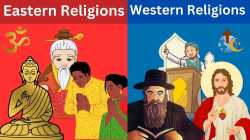 The entire Western framework is a schizo mess. Your philosophy and religion are walled off from each other, forcing you to be a brain-in-a-vat for analysis and a feeler for spirituality, never letting the two meet. Christianity's core idea is a massive chasm between a transcendent sky-daddy and his creation, an alienating dualism that infects everything and leads directly to the Cartesian mind-prison where your ego is perpetually trapped and separated from reality. This is the root of the modern blackpill. It's a self-centered faith that historically leads to crusades and intolerance because your "personal relationship" with God makes you think your way is absolute. Compare that to Buddhism: instead of a split, you get an organic, interconnected whole where everything flows together. The goal is realizing Śūnyatā (emptiness), which isn't nihilistic nothingness, but a positive reality once you annihilate the ego. It's the death of the self that leads to a life of true freedom, compassion, and non-attachment, letting you see things as they truly are. It's an existentially engaged path focused on your actual, daily life, not abstract dogma. Christianity and its obsession with "will" created the poison of modern nihilism. Buddhism is the antidote that actually solves it by getting rid of the self-centered ego at the heart of the problem. this book sounds more interesting to me than Revolt, but the writing style Evola employs in Revolt really put me off his writings, specifically how dense and rambling it is, plus the subject matter turned out being something I only really had a passing interest in anyway. I'm hoping Eros reads better. how does it compare? I've heard someone say it's his best book, or better than Revolt, at least Post hard-boiled crime fiction or noir pulp.
The entire Western framework is a schizo mess. Your philosophy and religion are walled off from each other, forcing you to be a brain-in-a-vat for analysis and a feeler for spirituality, never letting the two meet. Christianity's core idea is a massive chasm between a transcendent sky-daddy and his creation, an alienating dualism that infects everything and leads directly to the Cartesian mind-prison where your ego is perpetually trapped and separated from reality. This is the root of the modern blackpill. It's a self-centered faith that historically leads to crusades and intolerance because your "personal relationship" with God makes you think your way is absolute. Compare that to Buddhism: instead of a split, you get an organic, interconnected whole where everything flows together. The goal is realizing Śūnyatā (emptiness), which isn't nihilistic nothingness, but a positive reality once you annihilate the ego. It's the death of the self that leads to a life of true freedom, compassion, and non-attachment, letting you see things as they truly are. It's an existentially engaged path focused on your actual, daily life, not abstract dogma. Christianity and its obsession with "will" created the poison of modern nihilism. Buddhism is the antidote that actually solves it by getting rid of the self-centered ego at the heart of the problem. this book sounds more interesting to me than Revolt, but the writing style Evola employs in Revolt really put me off his writings, specifically how dense and rambling it is, plus the subject matter turned out being something I only really had a passing interest in anyway. I'm hoping Eros reads better. how does it compare? I've heard someone say it's his best book, or better than Revolt, at least Post hard-boiled crime fiction or noir pulp.
>TQ
Which crime author is your favourite? Books that have a similar vibe like this pic? 10 writers who’s books I’ve read five or more of: i'm sure many of you have noticed that the more western society declines, the more common it is for young people to adopt black slang
the consequences this will have for literature in the future (if it still exists, that is) will naturally be catastrophic the tattered prince edition
ASOIAF wiki: https://awoiaf.westeros.org/index.php/Main_Page
Blog: https://georgerrmartin.com/notablog/
Old blog: https://grrm.livejournal.com/
So Spake Martin (interviews): https://westeros.org/citadel/ssm/
Book search: https://asearchoficeandfire.com/
SSM search: https://cse.google.com/cse?cx=006888510641072775866:vm4n1jrzsdy
General search: http://searcherr.work/
TWOW samples: https://archive.org/details/411440566-the-winds-of-winter-released-chapters
old: >>24512890 Why does this one hit so hard? what is the best translation of st. augustine's confessions? Is this the best non-pop sci book on dinosaurs out there? >tfw when you're a young fiery nietzchean aristocrat that is riding the tiger but you have an old faustian-spenglerian soul that is shackled by the slave moralilty of ressentiment that prevents you from becoming the ubermensch Post a fake novel title and write a short synopsis for the title posted above yours
>Empty Dial Tones & Long Distance Hang-Ups I wanna get into detective/mystery/murder mystery books. (Not sure what they're called... books where there are crimes happening and there's a detective investigating everything) What are the must-read classics? And other recommendations? I prefer things with this old-fashioned aesthetic (old trains, fancy mansions, etc) but honestly anything that you think is good or would recommend also works. Don't be afraid of flooding me with lists, I want as many recommendationsaspossible. What's the /lit/ consensus on this? >"They're not like you and meeee!"
>"Which means they must be eeevil!"
Uh philosophysisters, our response? "Point out the next great writer" edition
Previous:
>>24537701
/wg/ AUTHORS & FLASH FICTION: https://pastebin.com/ruwQj7xQ
RESOURCES & RECOMMENDATIONS: https://pastebin.com/nFxdiQvC
Please limit excerpts to one post.
Give advice as much as you receive it to the best of your ability.
Follow prompts made below and discuss written works for practice; contribute and you shall receive.
If you have not performed a cursory proofread, do not expect to be treated kindly. Edit your work for spelling and grammar before posting.
Violent shills, relentless shill-spammers, and grounds keeping prose, should be ignored and reported.
(And maybe double-space your WIPs to allow edits if you want 'em.)
Simple guides on writing:
https://www.youtube.com/watch?v=pHdzv1NfZRM
https://www.youtube.com/watch?v=whPnobbck9s
https://www.youtube.com/watch?v=YAKcbvioxFk
Thread theme: https://youtu.be/YxEk44Zj5Kw?si=XqmCXHr0ULuk-VdZ Hey guys I wrote a poem. What do you think of it?
I would appreciate evaluation and feedback. One question anons: why did Guenon NEVER speak about anime girls wearing tights? I believe this is the question that must be answered before reaching true Initiation How much of an influence does /lit/ have on the world? Does what happens on /lit/ stay on /lit/? Or are we the testing ground of future world historical movements? I would like to formally challenge C&P's place in the /lit/ canon.
>Ham fisted ideology (Sonia, Luzhin, beating one over the head with Christian symbolism)
>Tedious
>Mediocre prose (I can accept that the CG translation is at fault here)
>Aesthetically unimpressive
I guess it's... fine, as a philosophical novel, but it doesn't deserve to be in anyone's top 10. What are some books that should be read together with other books? 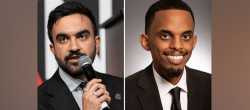 Just finished submission by Michel Houellebecq.
Just finished submission by Michel Houellebecq.
There were certainly more aspects of the protagonists life that were better before Muslim rule, mainly poon tang from a new young student every year. Mostly just that actually. But it seemed finally converting to Islam solved his problems and seemed to workout for him in the end.
Thats really what it boils down to is access to women. In a secular society you can be a chad or try o be and maybe get some. In Muslim society its chosen for you, and if your poor lower class like most people on this board your not getting laid either-way. I just fined the systematic nature of matchmaking and being limited to four wives kind of boring. The closest thing I can think of to an atheist, secular culture also promoting reproduction is like a hippy commune or something, where a bunch of druggies have babys but that usually devolves into just one man getting all the women.
What did you guys think of the book? I thought it was a rather happy ending and im looking forward to having a young wife or two if I can manage to make enough money and gain more notoriety as I get older. I have about nine years if going off the protagonist’s life as a model.
i quite enjoyed this book, quick read. what should i read next? of his. might read v for vendetta next Why don't you just use micro reading apps instead of browsing this site? Fact: nothing useful has ever been discussed here. 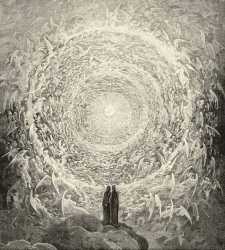

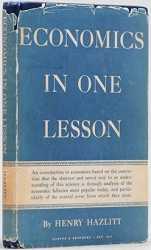
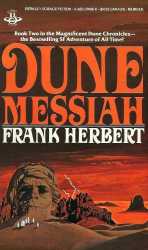
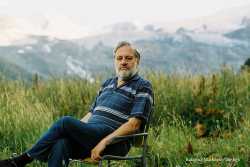
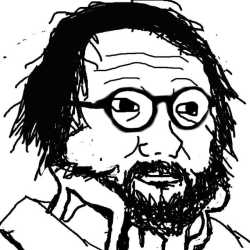

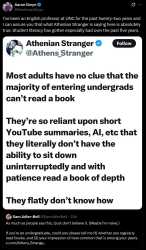
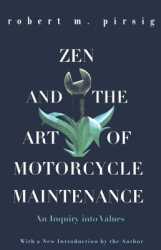
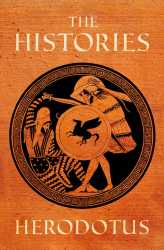

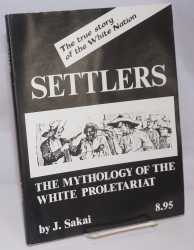
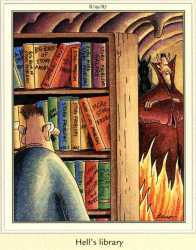

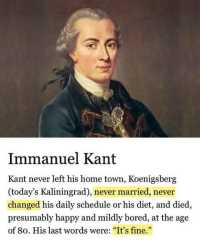
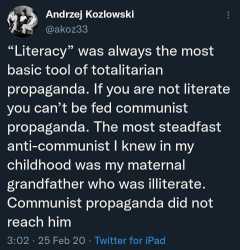
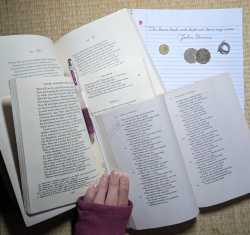
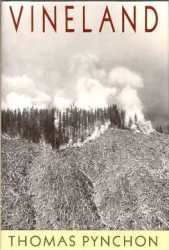
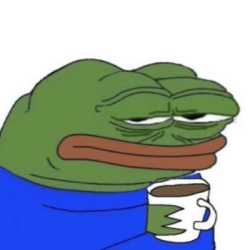
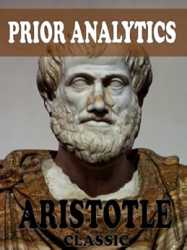
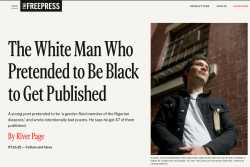
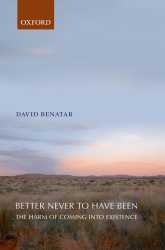

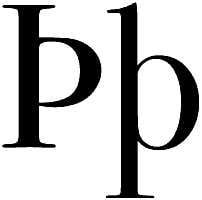

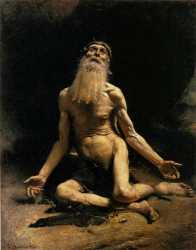
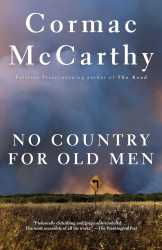

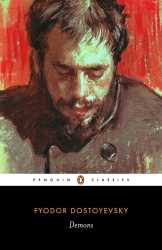

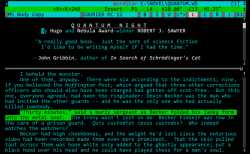
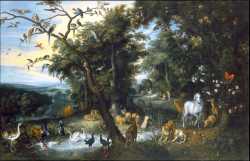
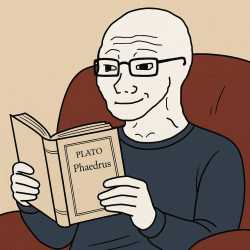
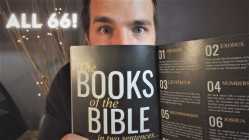


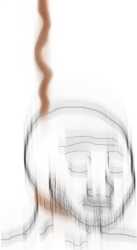
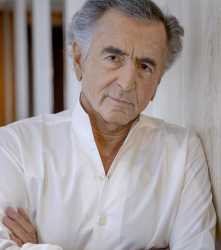
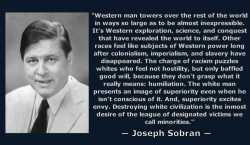
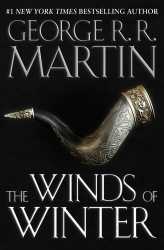
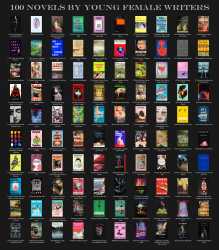



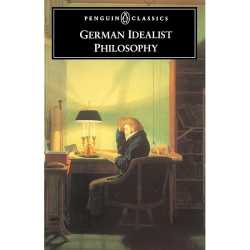
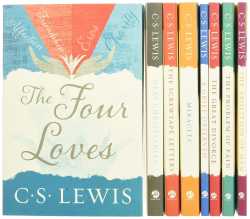
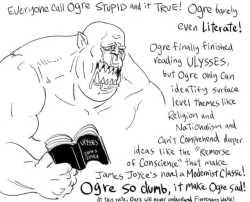
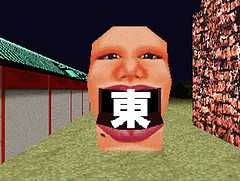
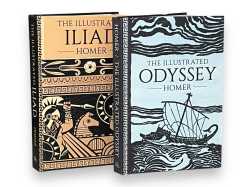
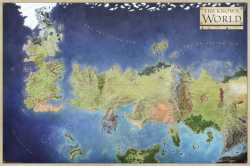
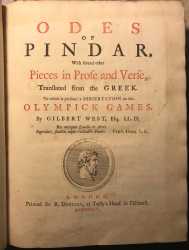
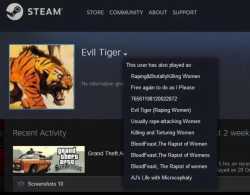
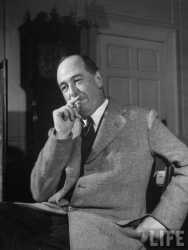
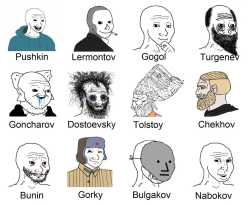
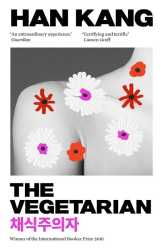


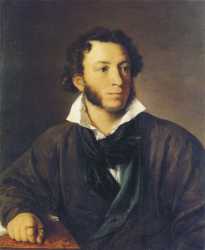

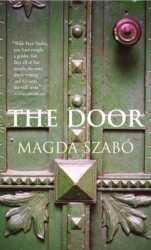
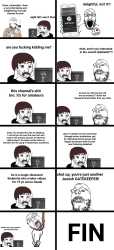
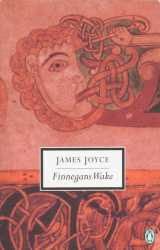
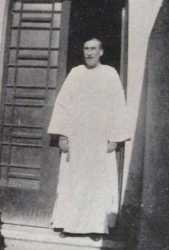
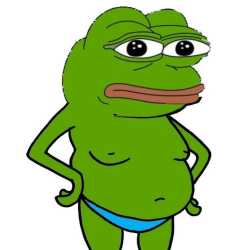



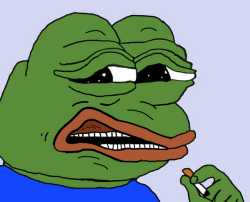
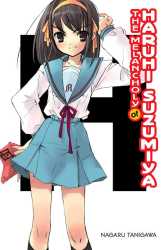
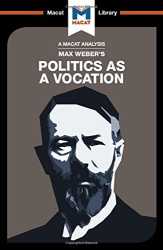
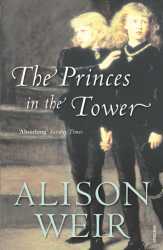
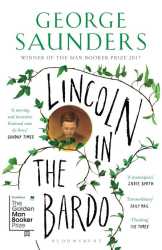
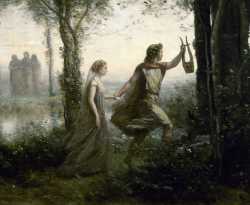
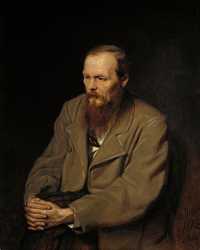
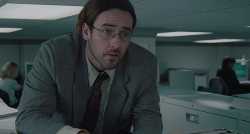
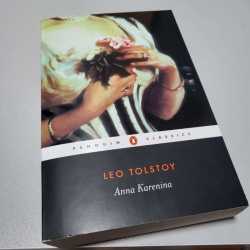
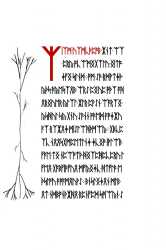
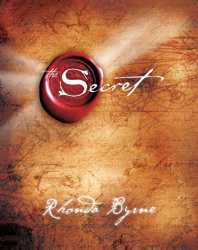
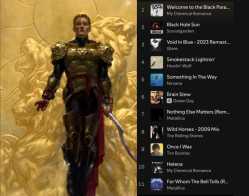
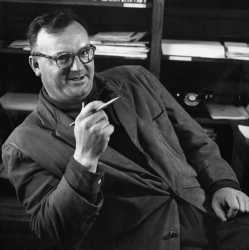
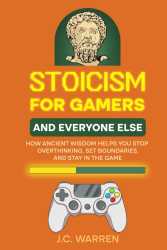
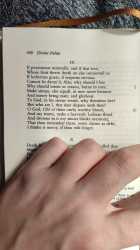
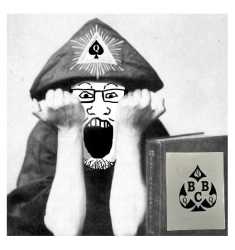
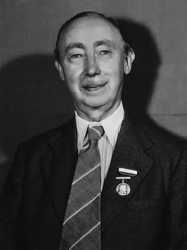

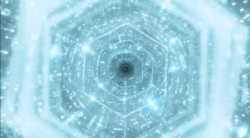
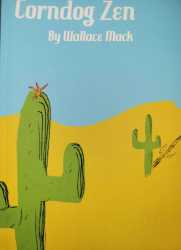
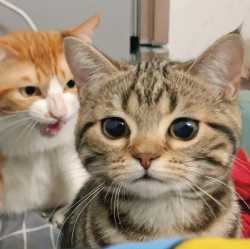
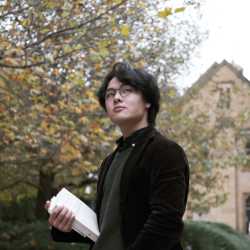
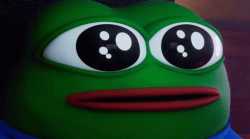

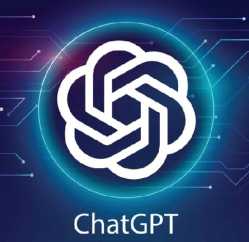
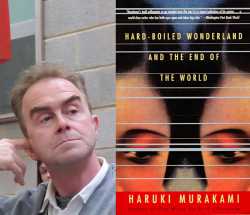
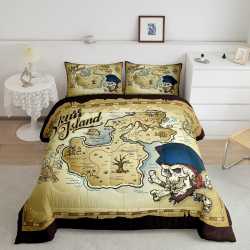
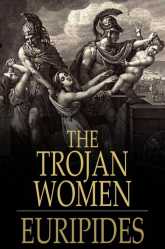
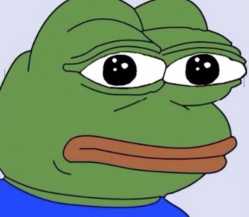
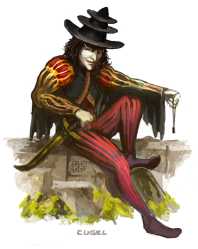


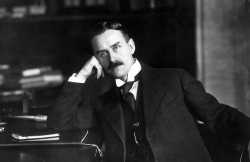
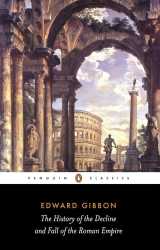
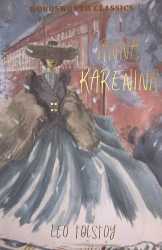
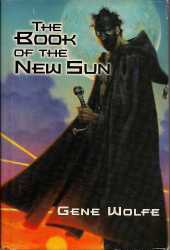
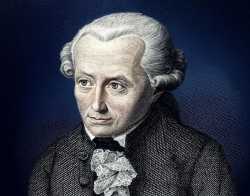
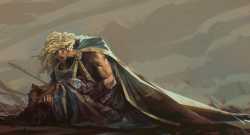
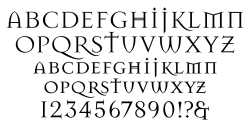
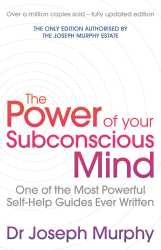
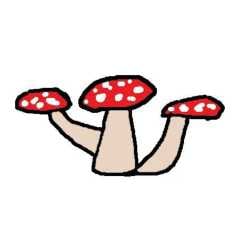
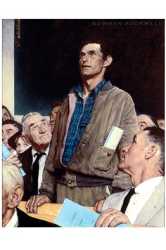
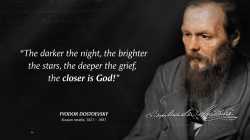
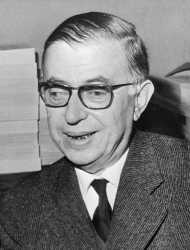

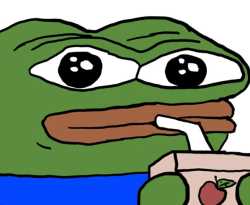
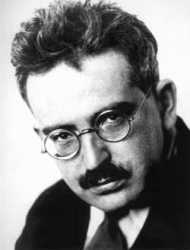
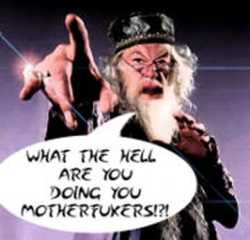

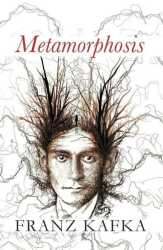
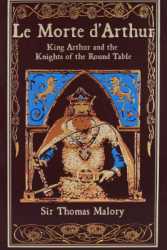
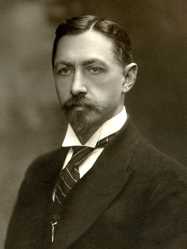
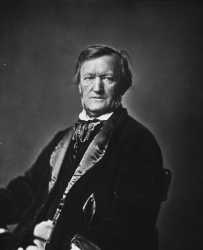

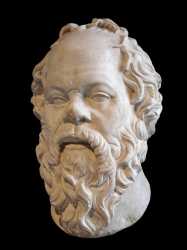
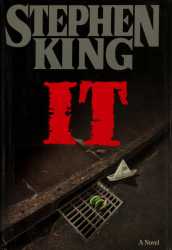
![zdartango[1]](https://i.4cdn.org/lit/1752716578765072s.jpg)
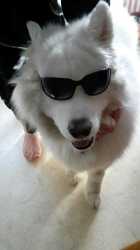
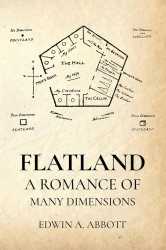
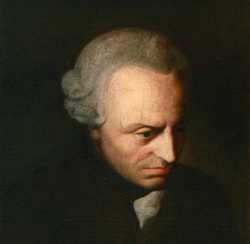

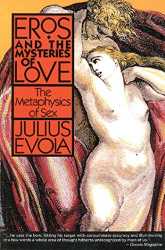
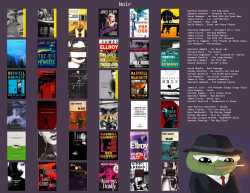

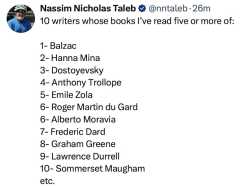

![DiegoGisbertLlorens_tattered_princeII[1]](https://i.4cdn.org/lit/1752224157223176s.jpg)
